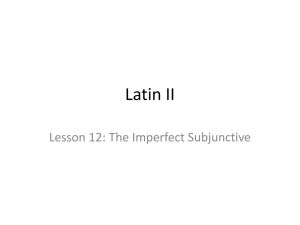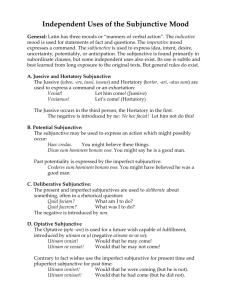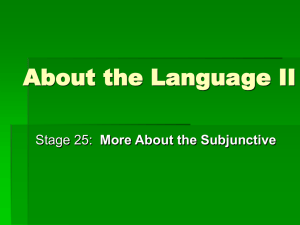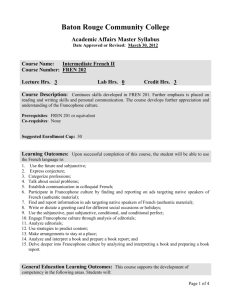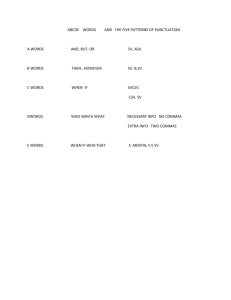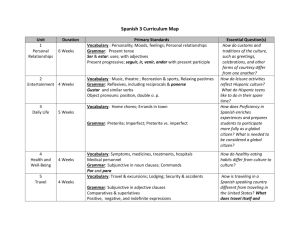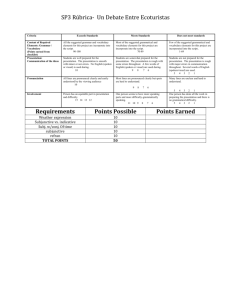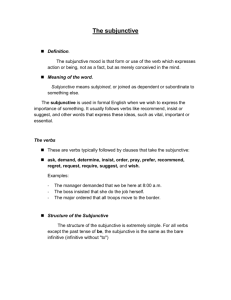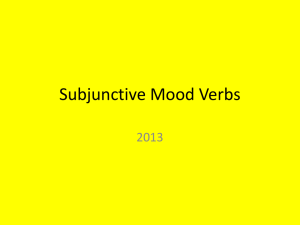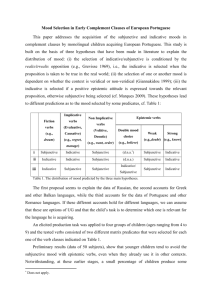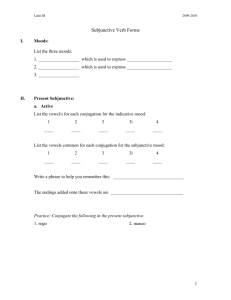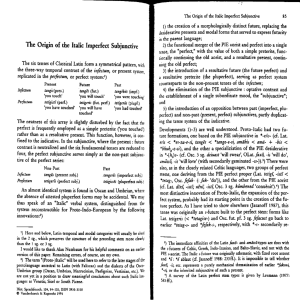Subjunctive Mood
advertisement
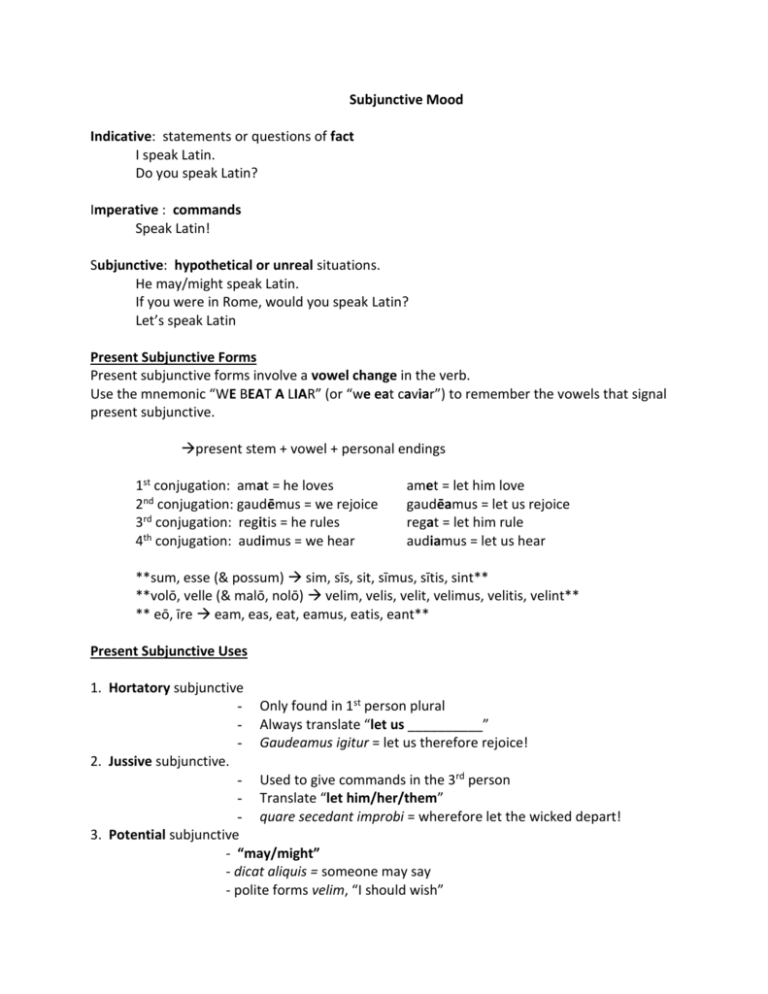
Subjunctive Mood Indicative: statements or questions of fact I speak Latin. Do you speak Latin? Imperative : commands Speak Latin! Subjunctive: hypothetical or unreal situations. He may/might speak Latin. If you were in Rome, would you speak Latin? Let’s speak Latin Present Subjunctive Forms Present subjunctive forms involve a vowel change in the verb. Use the mnemonic “WE BEAT A LIAR” (or “we eat caviar”) to remember the vowels that signal present subjunctive. present stem + vowel + personal endings 1st conjugation: amat = he loves 2nd conjugation: gaudēmus = we rejoice 3rd conjugation: regitis = he rules 4th conjugation: audimus = we hear amet = let him love gaudēamus = let us rejoice regat = let him rule audiamus = let us hear **sum, esse (& possum) sim, sīs, sit, sīmus, sītis, sint** **volō, velle (& malō, nolō) velim, velis, velit, velimus, velitis, velint** ** eō, īre eam, eas, eat, eamus, eatis, eant** Present Subjunctive Uses 1. Hortatory subjunctive - Only found in 1st person plural - Always translate “let us __________” - Gaudeamus igitur = let us therefore rejoice! 2. Jussive subjunctive. - Used to give commands in the 3rd person - Translate “let him/her/them” - quare secedant improbi = wherefore let the wicked depart! 3. Potential subjunctive - “may/might” - dicat aliquis = someone may say - polite forms velim, “I should wish” 4. Optative subjunctive - expressions of wishing, sometimes with “utinam” - dī istaec prohibeat = may the gods prevent that!” 5. Deliberative subjunctive - questions & exclamations involving doubt, indignation, impossibility, obligation - quid faciam = What shall I do? - Huic cedamus? Are we to yield to him??? (indiganant) Summary of translations: Let/may/might/shall Imperfect Subjunctive Forms The imperfect subjunctive formed from the infinitive + personal endings amāre amārem, -s, -t, -mus, -tis, -nt monēre monērem regere regerem audīre audīrem esse essem Subjunctive in Purpose Clauses Both the present and imperfect subjunctives are often found in purpose clauses, a type of dependent clause. Purpose clauses are introduces by the words ut (in order that) or nē (lest/in order that….not) 1. Main clause in present + present subjunctive collem ascendimus ut templum videāmus “We are climbing the hill in order that we may see the temple” fugiāmus nē hostibus capiamur. “Let us flee lest we be captured by the enemies.” OR in order that we not be captured by the enemies. 2. Main clause in any past tense + imperfect subjunctive Romam ivīmus ut Caesarem vidēremus “We went to Rome in order that we might see Caesar” OR in order to see Caesar domī manēbat nē vidēretur. “He was remaining at home lest he be seen.” OR in order that he not be seen. To summarize: Independent uses of subjunctive: Hortatory “let us” – present tense only Jussive “let him” - present tense only Dependent use of subjunctive: Purpose clauses “in order to/lest” – present or imperfect depending on tense of main clause
